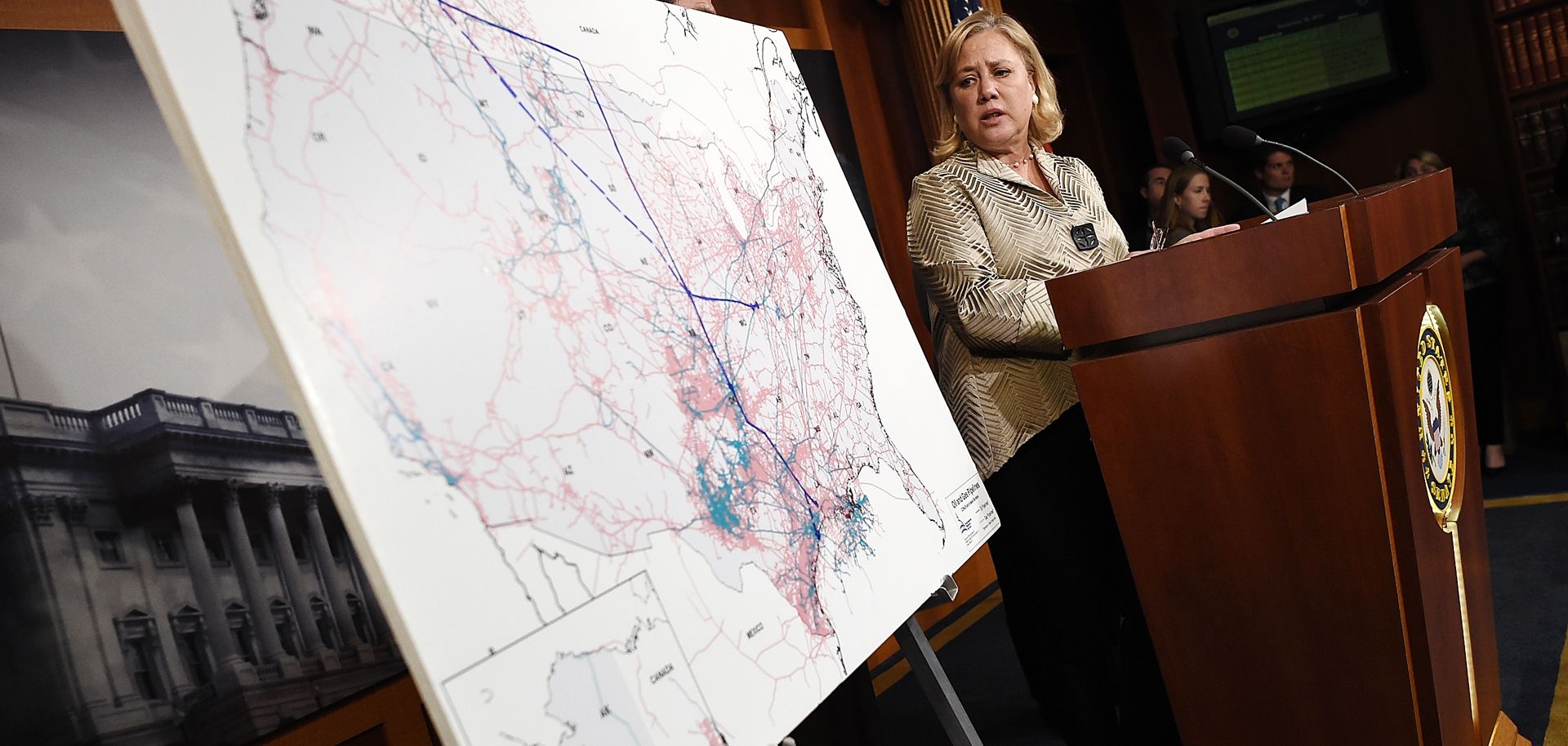ASSESSMENTS
Why Keystone XL Is More Important to Canada than the U.S.
Jan 9, 2015 | 10:01 GMT

(Win McNamee/Getty Images)
Summary
Approval of Keystone XL, the controversial pipeline that would move heavy Canadian crude to the U.S. Gulf Coast, has been stalled ever since it was first proposed in 2008. And it appears as though the oil industry may have to wait longer still: The Republican-controlled Congress will vote on a bill approving the pipeline's construction Jan. 9, but President Barack Obama has threatened to veto the bill if it passes.
Washington can afford to wait. U.S. oil production has risen by nearly 4 million barrels per day since 2010, and refineries along the Gulf Coast have plenty of access to foreign crude. But Canada is not so fortunate. Transportation bottlenecks have kept local oil prices much lower than international ones. With so many questions surrounding the Keystone project, Ottawa must continue to look for alternate routes to export its crude — something that will likely galvanize voters ahead of Canada's federal election in October.
Subscribe Now
SubscribeAlready have an account?
